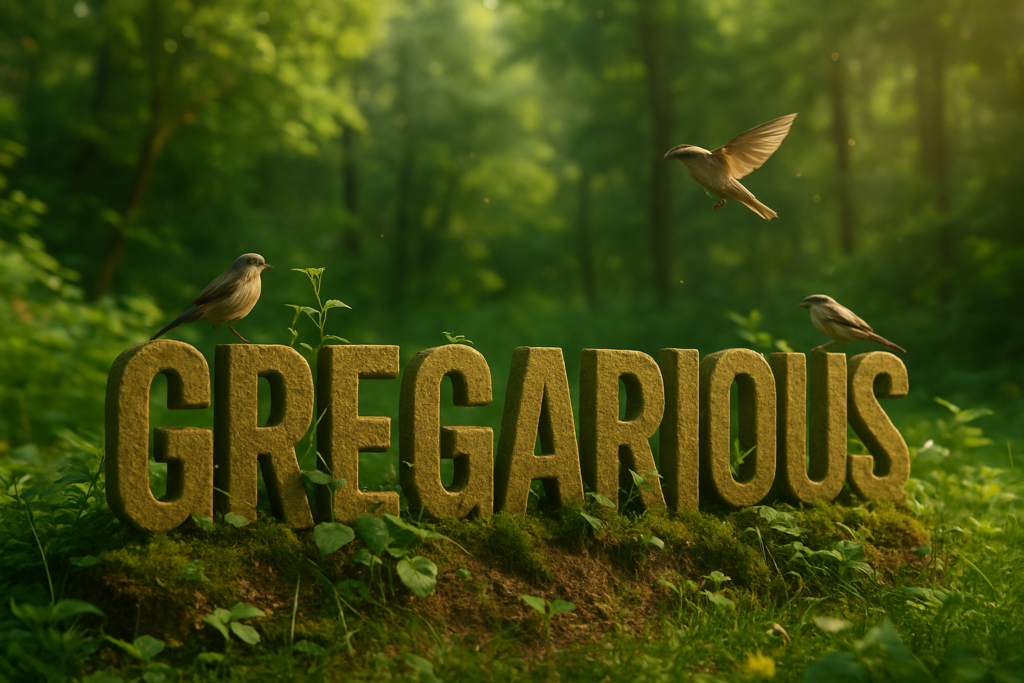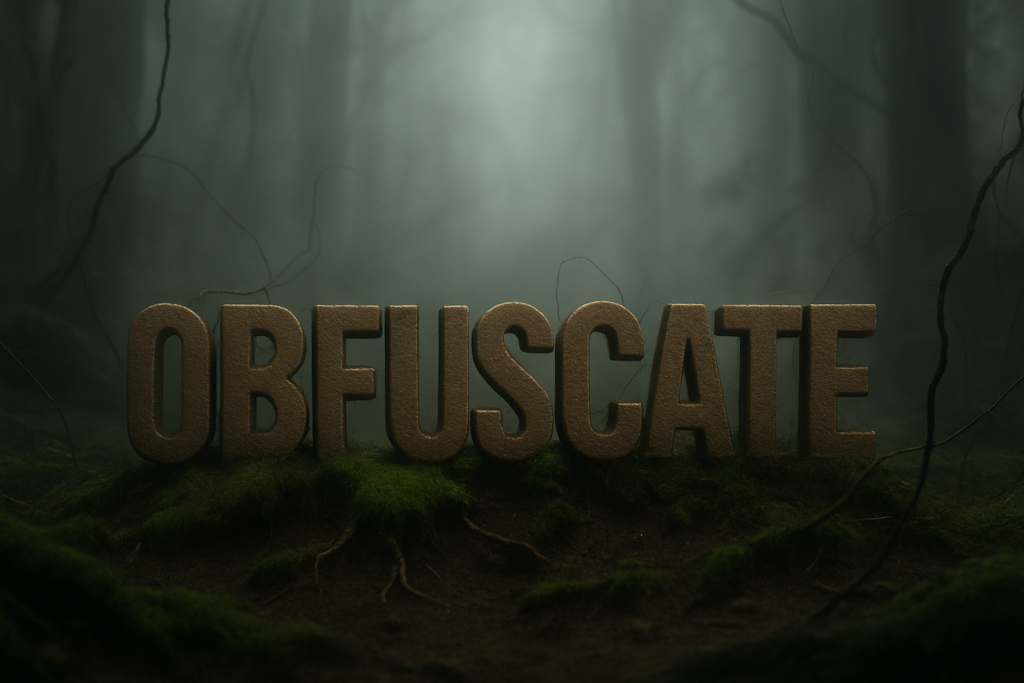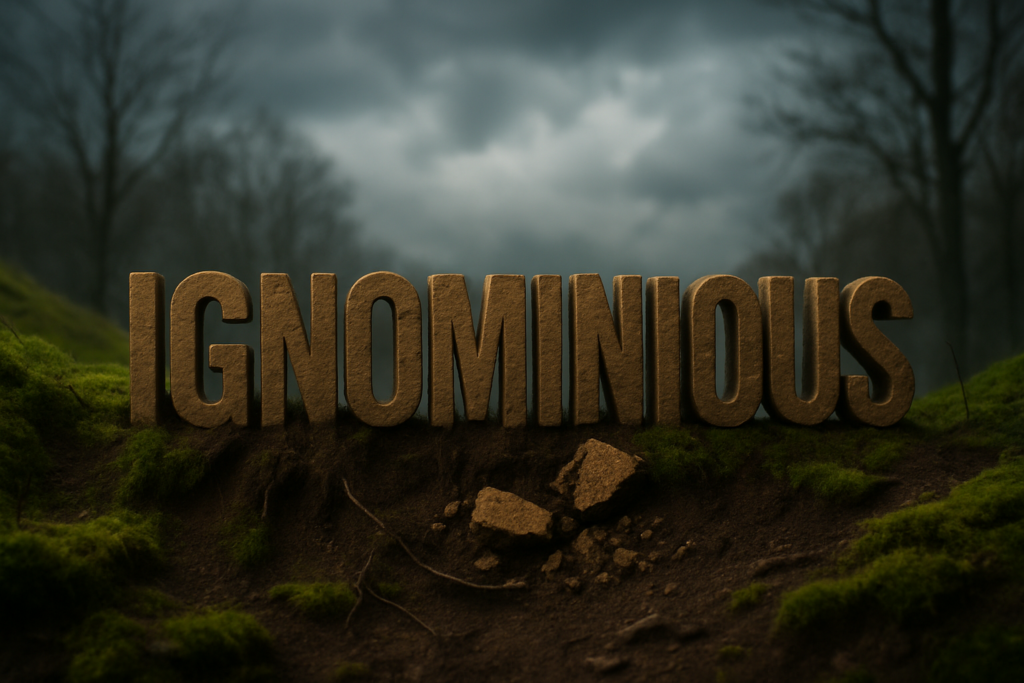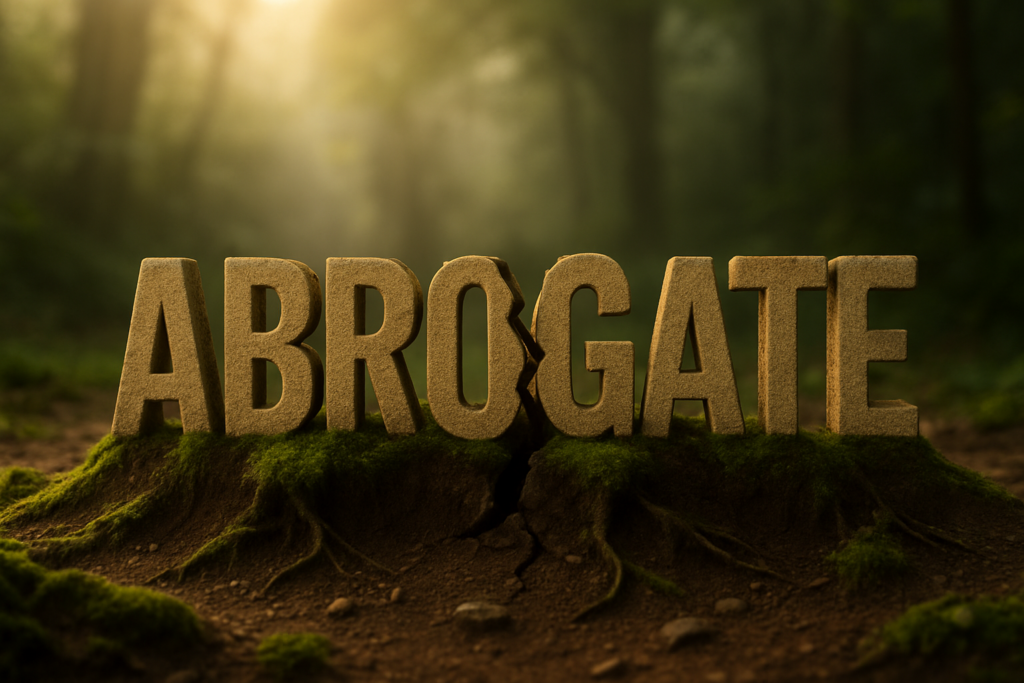Gregarious

Today's Word Gregarious gri-GAIR-ee-us Definition (adjective) Fond of company; sociable. Example Always gregarious, Mia effortlessly gathered people together wherever she went. Word Origin From Latin gregarius, meaning “belonging to a flock,” from grex — “herd” or “group.” Fun Fact In biology, animals described as gregarious naturally seek out groups—think flocking birds, schooling fish, or grazing herds. Humans show similar patterns: social behavior often strengthens memory, resilience, and mood. The word paints a picture of someone who thrives when surrounded by others, moving through life the way birds lift together on a shared current.
Obfuscate

Today's Word Obfuscate OB-fuh-skayt Definition (verb) To make something unclear, confusing, or difficult to understand. Example The report’s dense jargon seemed designed to obfuscate the real issues rather than address them. Word Origin From Latin obfuscare, meaning “to darken” or “to obscure.” Fun Fact In rhetoric and politics, obfuscation is practically an art form. Speakers may bury simple ideas beneath complex language or overwhelming detail to steer attention away from uncomfortable truths. Psychologists note that obfuscation often taps into cognitive overload—when your brain is juggling too much information, clarity slips away. The word perfectly captures that foggy moment when meaning hides behind shadows.
Carouse

Today's Word Carouse kuh-ROWZ Definition (verb) To drink and celebrate loudly or exuberantly, often in a rowdy group. Example After the victory, the whole team caroused through the streets until dawn. Word Origin From German garaus machen, meaning “to drink up” or “finish completely,” later evolving into the idea of boisterous revelry. Fun Fact In the 1500s, carousing referred to a specific drinking toast — essentially “bottoms up!” As the custom spread, the word broadened to mean any night of energetic, unrestrained festivity. Writers often use it to capture scenes of joyful chaos: overflowing taverns, festival crowds, or spirited celebrations where stories (and regrets) are made.
Enmity

Today's Word Enmity EN-muh-tee Definition (noun) Deep-seated hatred or hostility between people or groups. Example Years of competition had grown into open enmity, making cooperation nearly impossible. Word Origin From Latin inimīcitia, meaning “hostility,” related to inimīcus (“enemy”). Fun Fact In literature, enmity often signals a conflict that runs deeper than simple disagreement—it’s the simmering force behind famous rivalries like Montagues vs. Capulets or Holmes vs. Moriarty. Psychologists note that prolonged enmity can reshape group identity: people begin defining themselves by who they oppose. The word captures not just anger, but the enduring emotional landscape that turns opposition into something personal and lasting.
Ignominious

Today's Word Ignominious ig-nuh-MIN-ee-us Definition (adjective) Deserving or causing public shame, humiliation, or disgrace. Example The team’s ignominious defeat became the talk of the league for weeks. Word Origin From Latin ignominia, meaning “disgrace” (in- “not” + nomen “name, reputation”). Fun Fact In older English, an ignominious punishment meant one designed to publicly shame the offender—branding, stocks, dunce caps, and other visible displays of dishonor. Today, the word is most often used metaphorically, describing humiliating losses, failures, or scandals. Its power comes from the social nature of shame: an ignominious moment sticks not because you remember it… but because everyone else does.
Abrogate

Today's Word Abrogate AB-ruh-gayt Definition (verb) To abolish, repeal, or put an end to something (especially a law, policy, or agreement). Example The committee voted to abrogate the outdated regulation, clearing the way for more modern standards. Word Origin From Latin abrogare, meaning “to repeal” or “to take away by law.” Fun Fact The word abrogate often appears in legal, political, and diplomatic contexts because it refers to formal or authoritative cancellation—not just casual discontinuing. Interestingly, some treaties have been “abrogated by conduct,” meaning nations effectively ended them simply by acting differently rather than announcing a repeal. The term highlights how powerful the act of unmaking a rule can be—sometimes as impactful as creating one.
Foment

Today's Word Foment FOH-ment Definition (verb) To instigate, stir up, or encourage (especially trouble or rebellion). Example The speech was accused of fomenting unrest among the workers. Word Origin From Latin fovēre, meaning “to warm” or “soothe.” Fun Fact While foment sounds fiery, its roots are surprisingly gentle—it originally referred to warming or applying heat to soothe pain. By the 1600s, the word evolved metaphorically to mean “stirring up” passions or conflicts, much like heat can cause something to boil over. Today, it’s most often used in political or social contexts, describing the act of provoking movement or rebellion—the linguistic spark behind a blaze of action.
Somatic

Today's Word Somatic soh-MAT-ik Definition (adjective) Relating to the body, especially as distinct from the mind. Example The therapist emphasized somatic awareness, teaching clients to notice how emotions manifest physically. Word Origin From Greek sōma, meaning “body.” Fun Fact The word somatic bridges science and mindfulness. In medicine, it refers to the physical body—somatic cells are all cells except reproductive ones. In psychology, it’s used to describe practices that connect physical sensations with emotional states. Somatic therapy, for instance, helps people release trauma stored in the body through movement and awareness. It’s a reminder that the body and mind aren’t rivals—they’re teammates constantly communicating in ways we’re only beginning to understand.
Altruistic

Today's Word Altruistic al-troo-IS-tik Definition (adjective) Showing unselfish concern for the well-being of others. Example Her altruistic decision to donate anonymously inspired others to follow her lead. Word Origin From French altruisme, based on Italian altrui, meaning “of or to others.” Fun Fact Philosophers have long debated whether true altruism exists—whether humans ever act without some personal benefit. The term was first popularized in the 19th century by Auguste Comte, who believed society should be built on selflessness rather than competition. Today, psychology suggests that altruistic acts often activate the brain’s reward centers—meaning that helping others literally feels good. Still, altruistic remains one of the most admirable words we have: a reminder that compassion is contagious.
Verve

Today's Word Verve vurv Definition (noun) Enthusiasm, vigor, or lively spirit—especially in artistic expression or performance. Example The poet’s words were delivered with such verve that the audience hung on every line. Word Origin From French verve, meaning “animation” or “vitality,” once used to describe the spirited inspiration of a writer or artist. Fun Fact In the 16th century, verve referred to creative inspiration—the spark behind great art or eloquence. Over time, it came to mean any burst of lively energy or expressive force. Artists, musicians, and performers are often praised for their verve, but the word applies to anyone who brings enthusiasm and originality to their work. Whether it’s a passionate speech or a brushstroke filled with motion, verve captures that irresistible mix of confidence, flair, and vitality.
